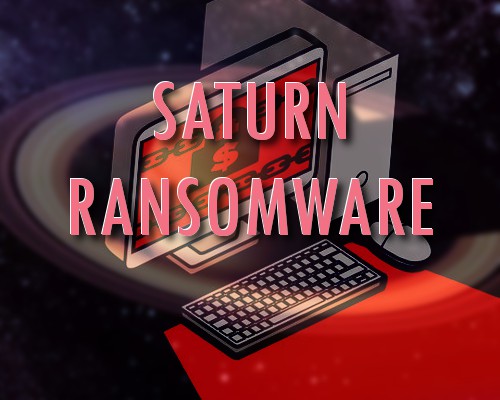Ransomware viruses are one of the most disturbing malware infections around. They encrypt users’ files and demand a ransom in exchange for the decryption key. However, RaaS (ransomware as a service) viruses are even more frightening as they allow people with no programming skills to become a part of a cyber crime. This time, we are discussing Saturn ransomware: anyone can distribute it and split the profits with its creators.
The infection was detected at the end of February and instantly received researchers’ attention. Saturn virus encodes data with RSA encryption algorithm and then demands $300 as a ransom. All of the damaged digital files will feature .saturn extension. The instructions hackers wrote can be read in “#DECRYPT_MY_FILES#.txt” and “#DECRYPT_MY_FILES#.html”. In these messages, victims are urged to download TOR browser and access hackers’ website. In this page, you will be introduced with the ransom demands. Apparently, if users do not pay the fee in 7 days, the ransom doubles.

Sadly, there is no known method which would guarantee that your files would be restored free-of-charge. The only option is to pay the ransom, but it might not work either. Hackers are not to be trusted: they might not bother to decrypt your data and leave it damaged (even if you paid them the fee).
If you are one of the victims of Saturn crypto-malware, you should remove it from your computer as soon as possible. Use reliable anti-malware tools for this task. While this won’t help you decrypt files, at least your computer will be clean. Keeping a ransomware infection can only create additional problems.
For the future, we hope that you will not download random programs from the Internet. A random pop-up could bring a devious malware parasite into your operating system. In addition to this, malspam is also a very huge problem. It is difficult to solve the issue with malicious email letters as many people still fall for the misleading messages from hackers.
If you receive a suspicious letter, urging you to download a file or follow a link, please do not do it straight away. Pay attention to the email address that the letter was sent from. Hackers are becoming more and more professional and the fake email messages can seem legitimate. However, we hope that you will be cautious and refuse to fall for their tricks so easily. Assuming that the Internet is a dangerous belief; nevertheless, many people still have this belief.